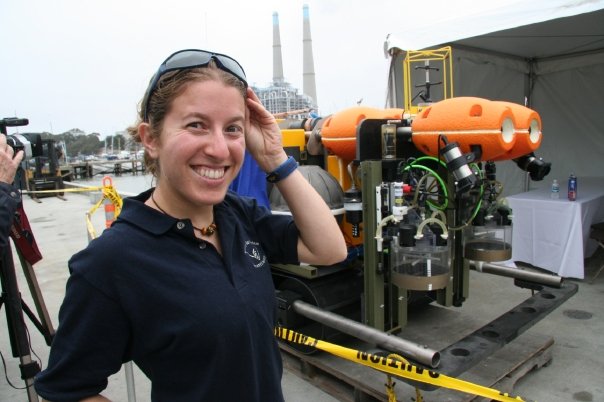
by Amanda Kahn, Invertebrate Zoology and Molecular Ecology Lab
Land ho! Two months ago, I left MLML and California on a flight to Chile to help out on a 40-day research cruise in Antarctica’s Weddell Sea. During the months leading up to the cruise, I worked dual lives–struggling to keep up with work at school while also making arrangements for travel, going through the necessary medical tests and preliminary cruise preparation, and starting up on my job as a public outreach person on the ship (I wrote a blog, just like my posts here).
Being out at sea for 40 days was an incredible and unique experience. Many of the things we take for granted on land are just different on a ship (stable ground, for example!). I was worried about being seasick the entire time, but I got my sea legs after a few days and was able to function just fine in almost any weather. Since everything on a ship is constantly moving, everything must be tied down or secured to prevent it from sliding around or falling. Laptop computers were tied down to tables and sat on non-skid mats to protect them–actually, anything that we didn’t want to have slide off the tables sat on non-skid mats, including our dinner plates! We had safety drills every week, which included fire drills and abandon ship drills. Also, we only had whatever we brought on the ship with us from the beginning, which meant that for six weeks, we had to make fresh foods last! Over the course of the cruise, our fresh foods progressed from a salad bar brimming with fresh fruits and veggies to a meager selection of hardy vegetables, like iceberg lettuce and carrots, and finally to preserved foods such as olives, pickles, and canned peaches and pineapple slices.
For the most part, I found life on the ship to be rather exciting, but certain aspects were difficult. We had no internet connection, and the email system transferred emails by satellite three times a day. That meant limited contact with people on shore. It also meant no YouTube, Google, or any other online websites. The science we did onboard more than made up for the lack of online entertainment, however. Trawls through the top 300 meters of water brought up animals like Antarctic krill, salps, jellies, swimming worms, and even swimming snail relatives called pteropods.

I’m now back in action at MLML, and ready to write again about what life is like here at the labs. It will be very different from life on the ship, but I think certain things are quite a bit nicer here on land (stable ground, for instance!).

